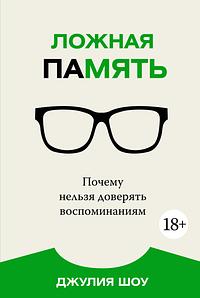You need to sign in or sign up before continuing.
Take a photo of a barcode or cover
I regret that I found this book very disappointing. In its structure (chapter - interesting fact, experiment(s), implications) it seemed to be attempting to follow on the success of Predictably Irrational, but in this case, there is no effective common thread linking the chapters. One could read this book in any order, skipping any chapters at random, and miss nothing of import. There’s no flow at all. It’s a random collection of lectures by a professor of psychology loosely related to the topic of memory. I say loosely because one is simply on the fact that people mostly think they’re more attractive than average.
The author even acknowledges this in two ways. One is by calling out chapters that can be skipped if one doesn’t want to get too technical. The trouble is, that chapter isn’t the least bit technical. It was all really dumbed-down, like intro lectures for a 101 class. The other example is that she refers several times to future chapters in the past tense. It was frustrating at first until I realized that it didn’t matter that when she writes “as I explained in chapter four” in the middle of chapter one, that it doesn’t really matter because the explanation in chapter four adds nothing to the point she’s making anyway. Her editor should be ashamed.
I keep calling these chapters lectures, because of the informal nature of the writing. Annoyingly informal. It might play well to a bored class of students, but reading all the forced attempts at titillation or weak humor and the many expressions of “AMAZING!” simply felt awkward to me.
But for all my criticism, I found a few nuggets of fact lurking in the pages which interested me and which made the book worth reading. I won’t share them in this review, so as not to spoil the book for anyone, but if I wanted to I could write a paragraph half the length of this review which contained everything interesting in the book. It was a good vacation read because I had the time to waste, but if I met someone generally interested in the topic, I’d put in some effort to find a better book to recommend. Perhaps just a few of the studies cited in The Memory Illusion would suffice to cover the useful material in a much more compelling way.
In the end, though, I blame the editor for all of the faults that made it to press. The author has good material at her fingertips and she knows her subject. She just really needed more critical help in organizing it for the general public.
The author even acknowledges this in two ways. One is by calling out chapters that can be skipped if one doesn’t want to get too technical. The trouble is, that chapter isn’t the least bit technical. It was all really dumbed-down, like intro lectures for a 101 class. The other example is that she refers several times to future chapters in the past tense. It was frustrating at first until I realized that it didn’t matter that when she writes “as I explained in chapter four” in the middle of chapter one, that it doesn’t really matter because the explanation in chapter four adds nothing to the point she’s making anyway. Her editor should be ashamed.
I keep calling these chapters lectures, because of the informal nature of the writing. Annoyingly informal. It might play well to a bored class of students, but reading all the forced attempts at titillation or weak humor and the many expressions of “AMAZING!” simply felt awkward to me.
But for all my criticism, I found a few nuggets of fact lurking in the pages which interested me and which made the book worth reading. I won’t share them in this review, so as not to spoil the book for anyone, but if I wanted to I could write a paragraph half the length of this review which contained everything interesting in the book. It was a good vacation read because I had the time to waste, but if I met someone generally interested in the topic, I’d put in some effort to find a better book to recommend. Perhaps just a few of the studies cited in The Memory Illusion would suffice to cover the useful material in a much more compelling way.
In the end, though, I blame the editor for all of the faults that made it to press. The author has good material at her fingertips and she knows her subject. She just really needed more critical help in organizing it for the general public.
challenging
informative
reflective
medium-paced
This was quite interested but it took be forever to read.
If you have any interest in memory, this is a great place to start. Much of what I picked up in this book five years ago still features in many of my conversations today. I recommend this book at least two or three times a year.
informative
informative
slow-paced
I think this was a good book - but am I remembering correctly? Whey! Too easy.
So yes... this is a brilliant compilation of scientific research around the field of memory. I particularly enjoyed the parts of the book around situations where we're likely to have over-confidence in our memory.
Overall, the book left me with a great sense of humility. Better knowing the limits of our memory is a great way to safeguard against spreading of false information / reduce biases in crimes / and avoid poor decision making.
Some examples seem to overlap between the different chapters - and I would have liked the book to go into a bit more detail about identity (but that's just the philosopher in me).
So yes... this is a brilliant compilation of scientific research around the field of memory. I particularly enjoyed the parts of the book around situations where we're likely to have over-confidence in our memory.
Overall, the book left me with a great sense of humility. Better knowing the limits of our memory is a great way to safeguard against spreading of false information / reduce biases in crimes / and avoid poor decision making.
Some examples seem to overlap between the different chapters - and I would have liked the book to go into a bit more detail about identity (but that's just the philosopher in me).
Amazing.... and terrifying! Julia Shaw successfully destroys our confidence in our memories. There is so much poignant and practical information in here, especially for anyone in sociology or criminology fields, or just anyone who interacts with humans. If you think you have a good memory, or that people who make up stories must be lying, or you think that eye-witness accounts are the most reliable form of evidence, this book will change your perspective. Fortunately I never had a great memory anyway.
My only gripe is that some of the studies cited seemed less than comprehensive or conclusive, but the overall message of the book was clearly supported by her supporting research.
My only gripe is that some of the studies cited seemed less than comprehensive or conclusive, but the overall message of the book was clearly supported by her supporting research.
informative
medium-paced
I absolutely loved it. One of the very few books that made me question myself and what I thought about myself. This book basically makes you look at your own memories critically, then teaches you it’s okay to have a flawed sense of what and how much you remember. The references were on point, I have actually circled some to read the actual papers later on. Loved the ending chapter, it was like a bandage over the wound the rest of the book left.
Would recommend it to anyone interested in how the human brain works (at least from a memory-forming and keeping perspective).
Would recommend it to anyone interested in how the human brain works (at least from a memory-forming and keeping perspective).




